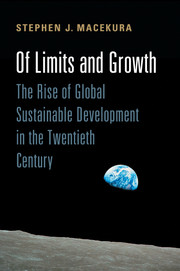Conclusion: The Growth and Limits of NGOs
Published online by Cambridge University Press: 05 July 2015
Summary
In 2003, Sebastian Mallaby, a veteran reporter for the Washington Post, visited Uganda. Development experts were celebrating the country as a success story because it had slashed its poverty rate by approximately 40 percent during the 1990s while many of its neighbors languished. Mallaby wanted to understand the changes. He also hoped to explore why, in spite of the rapid growth rates, some of Uganda's most important regions still faced endemic poverty. In particular, he wanted to see a region that for decades had captured the minds of many Westerners, particularly environmentalists – the impoverished area around the proposed Bujagali dam. The dam had been held up by many conservationists as an alternative to Uganda's proposed dam at Murchison Falls in the 1960s; only Idi Amin's last-second political maneuvering had spared Murchison. Decades of instability had plagued the country, though, and the Bujagali dam had yet to be built. Nearly fifty years after conservationists such as Julian Huxley, Peter Scott, and Russell Train had become preoccupied with Uganda's dams, Mallaby found himself similarly inspired.
Mallaby's visit to East Africa, however, came after environmentalists had won a major victory in Uganda. In the 1960s, Western activists went to East Africa and experienced tremendous difficulties to halt the construction of Uganda's dams. In 2003, they were in the midst of a successful yearlong campaign that had blocked financing for the Bujagali project. In need of a World Bank loan to pursue the project, the Ugandan government had been stymied by a group of American non-governmental organizations (NGOs) that had held up the loan in the bank's environmental review process. The International Rivers Network (IRN), a group based in Berkeley, California, had mobilized against the dam. They claimed that likely long-term social and environmental damage would undermine any short-term economic benefits.
The Ugandan government saw the project in a much different light. Ugandan officials believed the dam would spark an economic transformation in the region by providing electricity to impoverished villages. The tensions between Uganda's governing elite, the small NGO half a world away, and the struggling villagers caught in between perplexed Mallaby. “Was the NGO movement acting as a civilized check on industrialization, standing up for millions of poor people whose views the World Bank ignored?” he wondered.
- Type
- Chapter
- Information
- Of Limits and GrowthThe Rise of Global Sustainable Development in the Twentieth Century, pp. 304 - 316Publisher: Cambridge University PressPrint publication year: 2015



